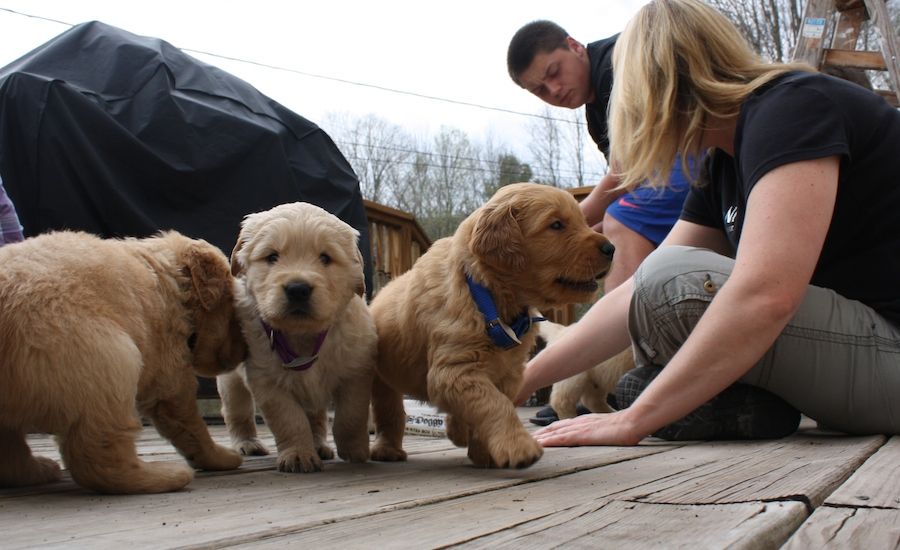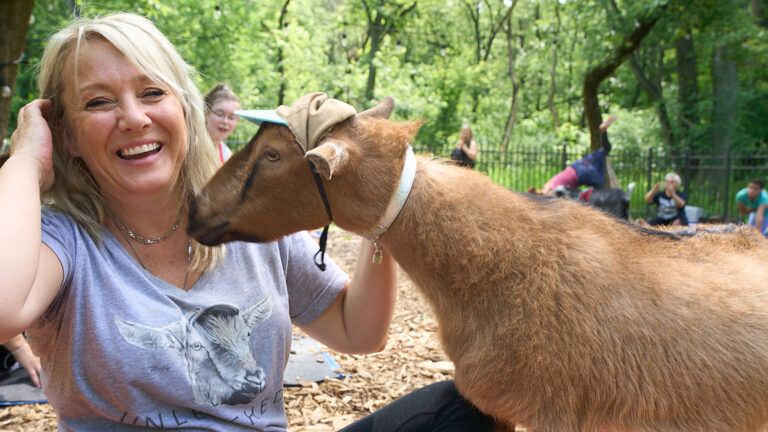Who doesn’t want a more positive outlook on life? Positive experiences, positive friends, positive prayer life. And also, positive relationships with our pets. Here are five ways you can become a more positive pet parent.
1) Positive Play
Playtime with your pets is great for strengthening the human-animal bond. Positive play includes physical exertion and mental stimulation. Here’s a game my dogs enjoy playing with me. (Cats will enjoy the game as well!) Hide treats around the house—maybe under a table, on a window sill or in a box. Then, let your pet explore, looking for the treats. Cheer when they succeed!
2) Positive Training
Positive training methods involve rewarding a dog for a correct response, as opposed to punishing for mistakes. Some dog training methods employ loud noises, harsh verbal corrections, pinch collars and electrical shocks to get dogs to obey–does that sound very positive to you?
Positive training uses verbal cues, hand signals, clickers and treats to set limits and guides dogs. I think this positive approach creates a happier, less anxious relationship between pet and pet parent.
3) Positive Touch
The act of stroking your cat or dog is good for both pet and person. It helps relax the pet and strengthen their bond with us. Patting an adored animal has been shown to reduce our blood pressure. Many dogs and cats enjoy a massage. There are even some people who are certified pet massage therapists!
4) Positive Meet-ups
My dog Ike loves meeting canine friends, but Kelly is standoffish. When you meet another dog on your walks, a positive approach will ensure the encounter goes smoothly. Ask the dog owner if their dog is friendly and would be interested in saying hello.
Then, allow the dogs to sniff each other, while trying not to tense up or send signals that you anticipate a problem. Praise your dog for behaving appropriately. If you notice your dog’s hackles rise, or his ears flatten, firmly lead your dog away and divert his attention.
5) Positive Pals
Teach your children early to respect your pet, and all animals. Never allow them to pull your cat or dog’s tail or treat them roughly. Help them recognize when a pet wants to be handled or left alone. Doing so will prevent injuries and foster a positive relationship as your child and pet become best pals.
Here’s to happy moments and lots of love between you and your pets.





